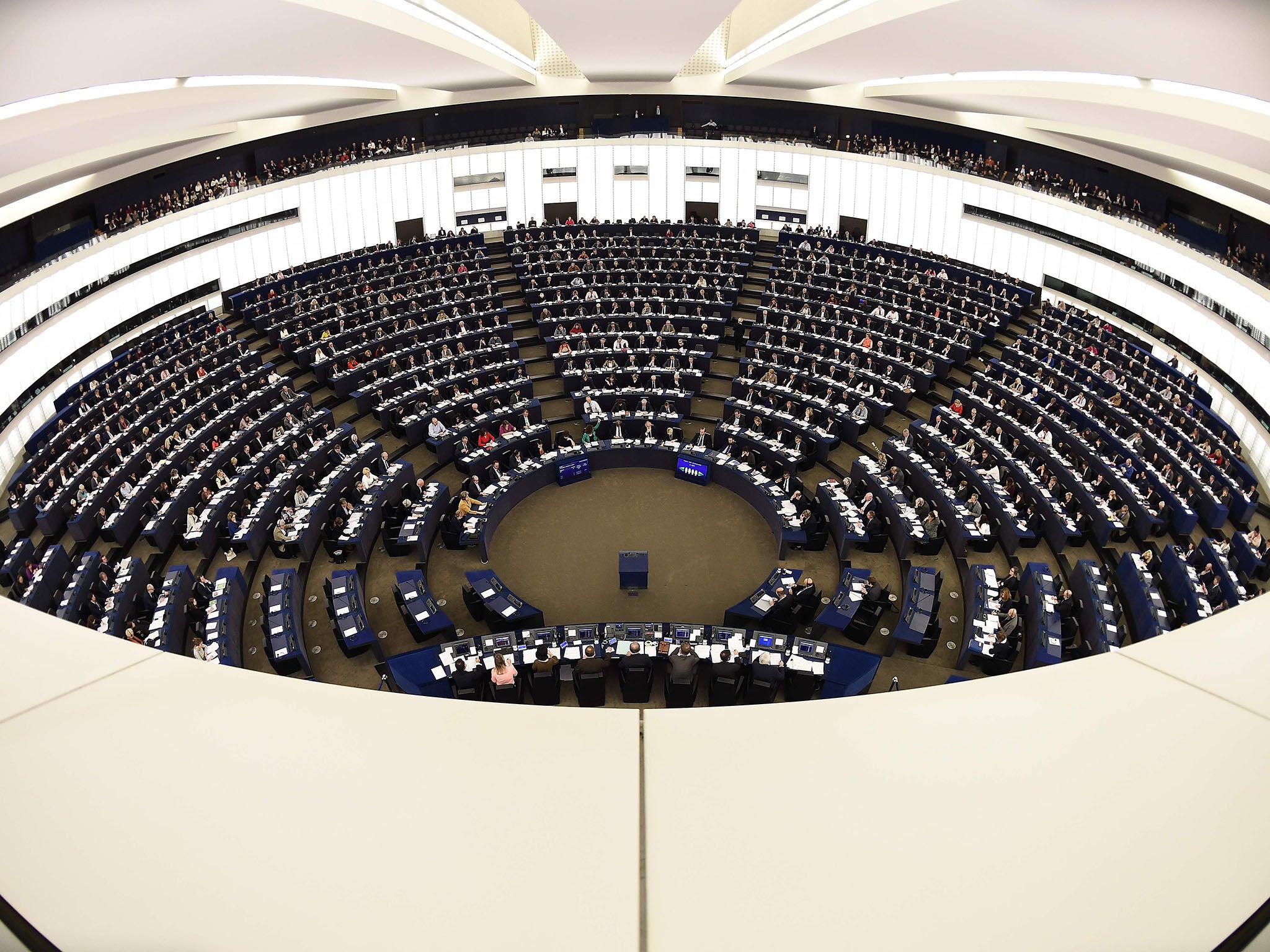European Parliament backs plans to create a defence union
The EU takes a step closer to the formation of a 'European army'

Your support helps us to tell the story
From reproductive rights to climate change to Big Tech, The Independent is on the ground when the story is developing. Whether it's investigating the financials of Elon Musk's pro-Trump PAC or producing our latest documentary, 'The A Word', which shines a light on the American women fighting for reproductive rights, we know how important it is to parse out the facts from the messaging.
At such a critical moment in US history, we need reporters on the ground. Your donation allows us to keep sending journalists to speak to both sides of the story.
The Independent is trusted by Americans across the entire political spectrum. And unlike many other quality news outlets, we choose not to lock Americans out of our reporting and analysis with paywalls. We believe quality journalism should be available to everyone, paid for by those who can afford it.
Your support makes all the difference.The European Parliament has backed plans to create a defence union which will secure structured cooperation between nations as well as a new EU military operational headquarters.
Lawmakers at the European Parliament voted 369-255 in favour of the proposals, which also calls for greater spending by nations on defence.
Although the vote is not legally binding it does represent support for the proposition before the European Council meets in December to discuss Europe’s defence capabilities.
Urmas Paet, the former foreign minister of Estonia, drafted the report and told The Independent he was glad Parliament had made a clear statement on how European defence should now develop.
“There are more and more risks to Europe related to terrorism, Russia, the Middle East and North and Central Africa,” Mr Paet said.
“[Currently] if there is some crisis emerging and you need to move military personnel and equipment from one European country to another, then it will take days or even weeks to get all the approvals.
“It is a very bureaucratic process and we all understand that when it is a crisis there is no time to wait for this kind of stuff.”
The plan was proposed in September by France and Germany but some have argued that the new European Defence Union would be a threat to Nato.
Geoffrey Van Orden, the Conservative’s European defence and military spokesman, argued strongly against the proposals.
“You can’t have the European Union trying to hijack what is essentially a Nato requirement. You have to separate the requirements for member states, in other words European allies, to spend two per cent of their GDP on defence, which has precious little to do with the EU’s ambitions,” Mr Van Orden told The Independent.
“The ambitions have been heightened for the creation of a European Defence Union and call it by whatever name you like, some sort of ‘European army’. Although they deny that’s what they want; but it is a ‘European army’ in everything but the name.”
Mr Orden also added that the motivation behind the proposal was to create further political integration and for the EU to act as “some sort of actor on the world stage”.
Mr Paet rejected this notion and said his proposals would strengthen the capabilities of Nato.
“Everything the EU does must go hand in hand with Nato. Some say it will weaken Nato but vice versa, we should do this in close coordination with Nato
“...Twenty-two EU member states are also Nato members. If they increase their defence budgets, it also automatically means more money for Nato,” the Estonian MEP told The Independent.
Mr Paet was also very strong in denouncing the idea that this represented a new “European army”.
“If Nato is there and functional, I don’t think so. If you have this ‘[European] army’ of 28 nations, there will be other problems. Cultural backgrounds and historical backgrounds and so on,” Mr Paet said.
Join our commenting forum
Join thought-provoking conversations, follow other Independent readers and see their replies
Comments